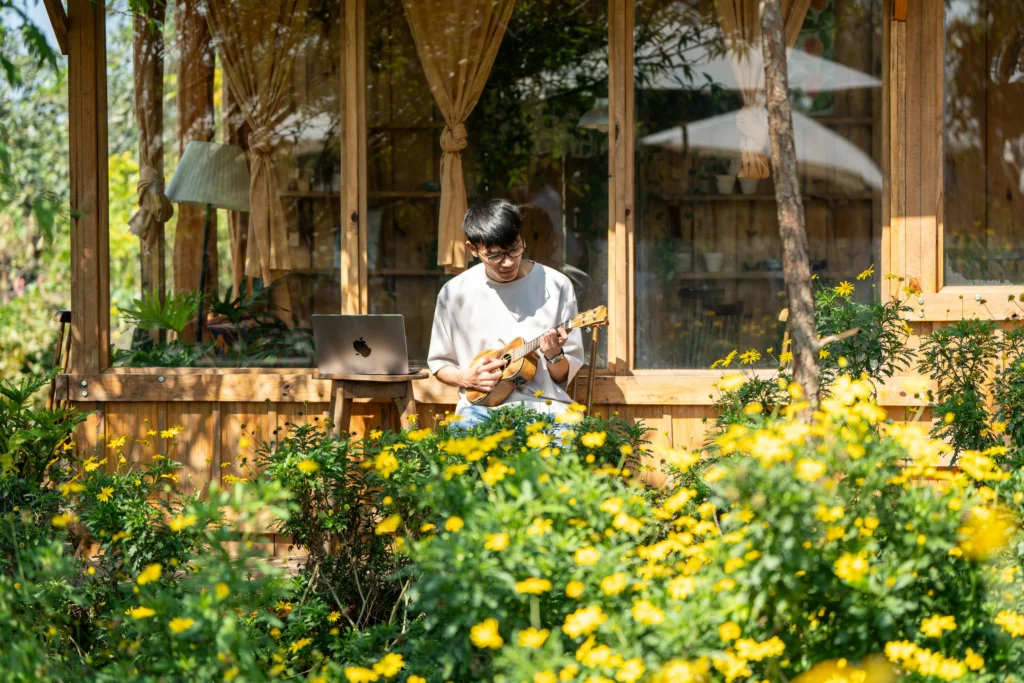Introduction
When is the best time to practise music? The answer is different for everyone. What matters most is finding the time that aligns with your natural energy, lifestyle, and mental rhythm. Whether you’re learning a song, practising an instrument, or composing, your practice schedule can deeply affect your growth and joy in music.
Contents
ToggleLet’s explore how different times of day—morning, afternoon, and evening—can impact your music practice. Backed by science and experience, you’ll be better equipped to choose your personal best time to practise music.

Morning: The Time to Build Focus and Clarity
Morning is often praised as the best time to practise music for focus and mental clarity. After a restful night, your mind is refreshed and free from distractions. Musicians who practise in the morning benefit from heightened concentration, sharper memory, and a peaceful environment.
Singers enjoy fresh morning air that supports better breathing and control. For instrumentalists, this time is perfect for technical drills, learning new pieces, and setting a productive tone for the day.
Limitations
Vocal cords may need time to warm up.
Physical stiffness may affect instrumentalists.
Not ideal for night owls or those with busy morning routines.

Afternoon: The Time to Refine and Engage
For many musicians, the afternoon can be the best time to practise music. By this point in the day, your body is fully awake and warmed up, making it ideal for refining technique, exploring creative ideas, and building consistency. Energy levels are typically stable, allowing for focused and productive sessions.
The afternoon also offers a social advantage—it’s a great time for group rehearsals, music classes, or jamming with peers. Without the rush of the morning or the fatigue of the evening, creative inspiration often flows more freely.
Limitations
Post-lunch drowsiness may affect focus.
Vocal fatigue may set in from earlier use.
Potential for interruptions or distractions.

Evening: The Time to Relax and Express
For many, the evening is the best time to practise music when emotional expression and artistic depth come naturally. After a full day of experiences, musicians often feel more connected to their feelings, making this an ideal time to explore music on a deeper, more personal level.
Evening practice tends to be unrushed and peaceful. With fewer time pressures, it’s the perfect moment to unwind, experiment, and enjoy the creative process without distraction.
Limitations
Fatigue may reduce focus and energy.
Household distractions or background noise.
Stimulating practice may disrupt sleep.

Conclusion
So, when really is the best time to practise music? The answer lies in you.
Morning is great for clarity and foundational skills.
Afternoon helps refine and engage with technique and collaboration.
Evening is perfect for self-expression and reflection.
The key is consistency. Don’t let time be an excuse. Instead, choose your ideal slot, commit to it, and let your music journey unfold. Whether it’s dawn, midday, or dusk—practice with presence, purpose, and passion. Explore our online music courses to find one that fits your rhythm.

